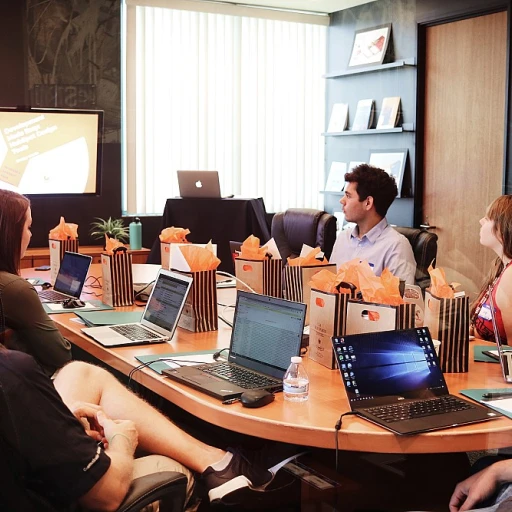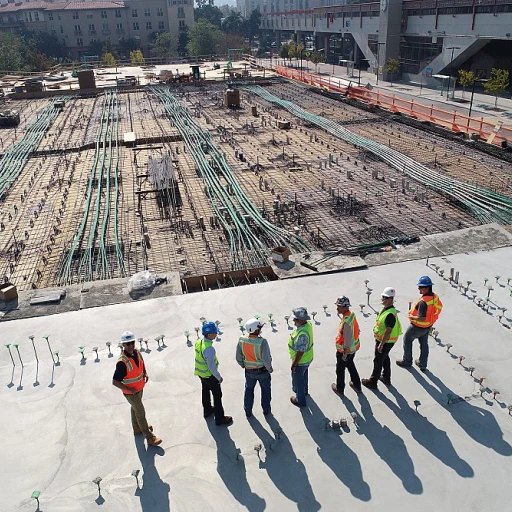
The Importance of Forestry Development Authority
The Critical Role of the Forestry Development Authority in Liberia
The Forestry Development Authority (FDA) is pivotal in managing and conserving the forests of Liberia—known for its rich biodiversity and dense timberlands. The institution is tasked with overseeing the sustainable management of forest resources in alignment with conservation practices and economic development mandates.
In the wake of war and other socio-political challenges, the FDA has had to restructure and redefine its approach to ensure that forest conservation efforts are effective. This involves coordinating national forest policies that align with the Republic of Liberia's ambitious goals to leverage its natural resources responsibly.
Central to the FDA’s mission is its ability to act as a liaison between the government, international partners, and local communities. This engagement is crucial for maintaining transparency and trust, which are essential for successful project execution across the country. The FDA frequently updates its publications to keep stakeholders informed about its initiatives and achievements.
While overseeing forestry projects, the FDA also deals with the complexities of addressing illegal logging and implementing effective conservation strategies. These are critical in ensuring that Liberia's forests can support future generations and contribute to the country's economic viability.
The national mandate of the FDA involves not only the preservation of forest resources but also supporting sustainable development practices that encourage economic growth. It serves as a development authority for managing Liberia's forestry sector, ensuring that it remains a vital contributor to the country's future.
For more insights on overcoming challenges in forest management, read this inspirational guide.
Challenges in Forestry Management
Overcoming Hurdles in Sustainable Forestry
The Forestry Development Authority (FDA) of Liberia plays a crucial role in managing the country's forest resources. However, several challenges threaten the sustainable management of these forests. One significant obstacle is the ongoing issue of forest conservation amidst increasing demands for timber and other forest products. The FDA faces the complex task of balancing economic development with conservation efforts. This is vital for the preservation of Liberia's national heritage and for ensuring resources remain available for future generations. War and political instability have historically disrupted forestry operations, leading to illegal logging and deforestation. The aftermath of such conflicts presents further challenges as the government of Liberia strives to restore the integrity of its forestry management practices. Moreover, the construction of infrastructure within forested areas can impact conservation efforts. Development projects must consider environmental impacts carefully to prevent the degradation of the forest ecosystem. This requires a strong mandate from the FDA to enforce regulations effectively. Corruption and inadequate funding often hamper the efforts of the FDA. Limited resources make it difficult to monitor and enforce forestry laws, which further complicates the agency's goals. It's essential for the government, including the President of Liberia, to prioritize support for the authority to empower its mission. Lastly, addressing the generation's mandate involves engaging communities actively in forestry conservation projects. Building awareness and cooperation among local populations is indispensable for sustainable forest management. For more insights on identifying and addressing leadership challenges in such complex environments, consider exploring this article on uncovering leadership blind spots through stress management.Strategies for Sustainable Forestry Practices
Implementing Robust Approaches to Ensure Long-Term Success
In the journey of fostering sustainable forestry practices, the Liberia Forestry Development Authority (FDA) stands at the forefront of shaping strategies that harmonize forest conservation with economic growth. The agency's mandate is crucial, yet the path is riddled with challenges, as previously discussed. To carve a successful route forward, a series of well-considered strategies are essential.- Emphasizing Sustainable Timber Harvesting: Implementing and enforcing guidelines for the responsible extraction of timber is fundamental. This involves understanding the carrying capacity of various forest zones and ensuring that harvesting does not exceed regeneration rates.
- Promoting Conservation Projects: Collaborations with local and international bodies can foster projects aimed at conserving biodiversity. These projects not only enhance forest health but also ensure that wildlife habitats are preserved for future generations.
- Developing a National Forest Management Plan: Establishing a comprehensive plan that aligns with national priorities is critical. This would involve input from key stakeholders, including FDA employees, local communities, and government representatives.
- Strengthening Regulatory Frameworks: Addressing illegal logging and unsanctioned deforestation through stringent measures can help curb damage to Liberia’s forests. Transparent press releases and efficient channels of communication, such as emails, play a pivotal role in keeping the public informed about regulatory changes.
Technological Innovations in Forestry Management
Innovative Approaches in Forest Management
In the context of Liberia's forestry management, technological advancements have become indispensable tools in enhancing the operations of the Forestry Development Authority (FDA). These innovations play a pivotal role in ensuring sustainable practices, addressing challenges, and aligning with the national mandate to conserve and develop forest resources effectively. The integration of technology in forestry management offers several benefits:- Efficient Monitoring: Advanced satellite imagery and drones provide real-time data, enabling the FDA to monitor deforestation activities more efficiently. These tools aid in the detection of illegal logging, which has been a persistent issue in Liberia.
- Data Collection and Analysis: The use of GIS (Geographic Information Systems) allows the FDA to collect and analyze spatial data, leading to better decision-making processes. This technology supports comprehensive mapping, which is essential for sustainable planning and conservation efforts.
- Automated Reporting: Implementing automated systems allows the authority to streamline the process of reporting deforestation and conservation updates. This helps in maintaining transparency and keeps relevant stakeholders informed, including the government of Liberia and international conservation organizations.
- Collaboration Platforms: Digital platforms foster communication and collaboration among FDA employees, enhancing project coordination and execution. Enhanced communication ensures that all parties involved in the management of forest resources work towards a common goal, ultimately benefiting future generations.
The Role of Community Engagement
The Crucial Involvement of Local Communities
The role of community engagement is pivotal in achieving sustainable forestry management within Liberia's rich forests. The Forestry Development Authority (FDA) recognizes that conservation efforts cannot be successful without the active participation of the local populations. Engaging communities is vital for several reasons:
- Cultural Connection: The people living near or within forests often have deep-rooted knowledge and cultural ties to the forest, making them invaluable allies in conservation efforts.
- Economic Incentives: Including local communities in development projects can provide economic benefits through sustainable timber and non-timber forest products, aligning with the FDA's mandate and enhancing forest conservation strategies.
- Empowerment: Providing a platform for community members to voice their perspectives and involve them in decision-making can lead to more effective management outcomes, driven by collective goals and interests.
The FDA has been implementing projects designed to ensure that the future generations of Liberia can enjoy and benefit from the forest resources. This approach counters past challenges exacerbated by war and complements technological innovations as discussed earlier. Successful engagement hinges on transparency and ongoing communication, often highlighted through FDA press releases and government news updates. Encouraging active dialogue through assemblies, email exchanges, and national publications strengthens relationships and reputation among communities as partners rather than just beneficiaries.
By recognizing the importance of community collaboration, the FDA aspires to create an environment where sustainable forestry practices are not only a governmental project but a national mandate adopted and cherished by every inhabitant of the Republic of Liberia.













